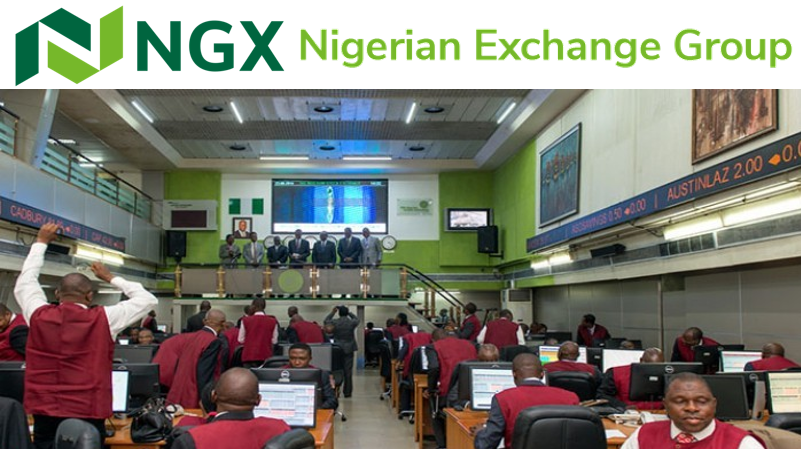capital market
SEC seeks tax exemption on corporate bonds to boost market liquidity
…To launch revised capital market masterplan next month
The Securities and Exchange Commission has urged the Federal Government to consider its proposal to exempt corporate bonds from the payment of tax.
The Director-General of SEC, Lamido Yuguda said this on Friday during a press briefing on the outcome of the second Capital Market Committee meeting for this year.
The Federal Government had in 2012 exempted bonds and short-term government securities from income tax for ten years which recently expired on January 1, 2022.
But speaking on the tax on corporate bonds, the SEC DG said the decision to seek tax exemption would help to unlock the attractiveness of the corporate bond market.
He said, “The Nigerian Capital Market community held its second Capital Market Committee (CMC) Meeting for the year on Thursday, August 18, 2022. The meeting was well attended by over 300 capital market operators and we had very robust deliberations.
“We observed that the world is facing high inflation and low growth. Consequently, the World Bank, the International Monetary Fund and other Economic forecasters are trimming down growth estimates with forecasts reflecting sizable downgrades to the outlook for the rest of the year and 2023.
“The Commission continues its engagement with the Minister of Finance, Budget and National Planning on the request for tax exemption for corporate bonds.”
He added, “For any asset class, the investment is a function of many considerations. Tax is just one of those consideration. Although it is only one, it is an important consideration especially when the tax rate is high.
“So, I think for now, given that there are so many considerations, and considering all these factors, we feel the tax rebate should be reinstated and we have been working with the tax and fiscal authorities to advocate the return to the status quo.”
The SEC DG also said that the revised Capital Market Masterplan would be launched by November following its approval by the Federal Government.
The Capital Market Master Plan Implementation Council had in June this year submitted the revised Nigerian Capital Market Master Plan (2021-2025) to the Minister of Finance, Budget and National Planning.
Yuguda asssured that despite the harsh operating environment, the Commission will continue to strive and fulfil its mandate of protecting investors and creating an enabling environment for market operations.
The SEC Boss urged all stakeholders to continue to work towards reducing the volume of unclaimed dividends and reiterated that stiff penalties will be meted out to any stakeholder whose action appears to frustrate the efforts of the Commission on this objective.
He lamented that despite the Commission’s efforts in the implementation of the Electronic Dividend Mandate Management System, investors have continued to lament the delayed payments of e-dividend and the cumbersome manual process among other shortcomings.
“A large number of investors are also still unaware of the eDMMS and have not mandated their accounts. The Commission will however continue to create awareness in this regard.
“Capital market operators must also do more to demonstrate, through their activities, an efficient capital market that prioritizes the interests of investors,” he added.
As part of its efforts to stem the tide of fraudulent activities of unregistered investment crowdfunding platforms, the SEC DG at the briefing warned operators of such platforms that they stand the risk of being prosecuted.
He said, “The Commission has an existing regulatory framework that permits private companies with the required structure and mechanism to raise capital from the public through crowdfunding. All crowdfunding platforms must register with the Commission.”
capital market
Financial expert seeks alignment of FG’s fiscal policy with CBN’s monetary policy


A financial expert, Mr Eddie Osarenkhoe, has advised the Federal Government to align its fiscal policy with the Central Bank of Nigeria’s monetary policy to achieve economic stability.
Osarenkhoe, the immediate past President of Finance Houses Association of Nigeria (FHAN), gave the advice while speaking with newsmen on Wednesday in Ota, Ogun.
He attributed the current steady appreciation of the naira to CBN’s reforms and the country’s ability to pay some of its debts.
Osarenkhoe applauded the CBN reforms which, he said, had helped to sustain the steady appreciation of the naira against the dollar.
The financial expert stated that CBN was able to check speculators in the foreign exchange, thus resulting in continuous appreciation of the nation’s currency.
“If the federal government is able to come up with fiscal policy in alignment with that of CBN, it will help the nation’s economy a great deal,” he said.
According to him, the economy needs to improve through exports to enable the country to earn more foreign exchange.
The naira has shown a remarkable strength against the US dollar, trading below N1,000 at the official market.
This development has been attributed to the strategic financial policies being implemented by the President Bola Tinubu-led administration and CBN.
capital market
Investors lose N457bn as bearish sentiment continues


Investors in the Nigerian equities market lost N457 billion at the end of trading on Wednesday.
This followed the dip in the share value of Livestock Feeds, Computer Warehouse Group, International Energy Insurance, and FTN Cocoa Processors on the trading floor today.
After five hours of trading at the capital market, the equity capitalisation crashed to N56.5 trillion from N56.9 trillion posted by the bourse on Tuesday.
Similarly, the All-Share Index (ASI) fell below the 100,000-mark to 99,908.89 from 100,717.21 achieved by the bourse the previous day.
The market breadth was negative as 17 stocks advanced, 26 declined, while 78 others remained unchanged in 9, 074 deals.
Ikeja Hotel topped the gainers’ list with +10.00 percent to close at N7.26 from its previous N6.60 per share.
Fidelity Bank, Academy, Morison, and Prestige also increased their share prices by 9.88 percent, 9.77 percent, 9.71 percent, and 9.26 percent respectively.
On the flip side, Livestock Feeds, Computer Warehouse Group, International Energy Insurance, and FTN Cocoa Processors led other price decliners as they shed 10.00 percent, 9.79 percent, 9.79 percent and 9.72 percent each off their share prices.
UBA recorded the highest volume by trading 55.013 million shares valued at N1.28 billion in 1,092 deals followed by Zenith Bank with 47.029 million shares worth N1.69 billion traded by investors in 907 deals.
Access Corp traded 44.986 million shares valued at N789 million in 845 deals.
On the value index, Zenith Bank recorded the highest value for the day trading stocks worth N1.69 billion in 907 deals followed by UBA which traded equities worth N1.284bn in 1,092 deals.
Access Corp traded stocks worth N789 million in 845 deals.
capital market
Investors lose N598.69bn as NGXASI declines by 1.04%


The Nigerian stock market ended with a negative market breadth, closing 1,059.91 points lower.
The NGX All-Share Index declined by 1.04 percent to close at 100,717.21 basis points, compared to the previous day’s loss of 0.53 percent to close at 101,777.12 basis points. The NGX Market CAP also recorded a loss of N598.69bn Naira terms. YTD, the NGXASI Stands at 34.70 percent.
The total volume traded advanced by 23.65 percent to close at N403.89m, valued at N8.38bn, and traded in 10,170 deals. ACCESSCORP was the most traded stock by volume with N62.93m, while GTCO was the most traded stock by value with N1.74bn units traded.
The Gote Index declined by 0.46 percent to close at 347.33 basis points, while the Toni index declined by 3.94 percent to close at 565.65 basis points.
At the close of trading, the market recorded 7 gainers, 50 losers, and 67 unchanged. MORISON topped the gainers’ list, while CORNERST topped the losers’ list.
Thus, the market closed with a negative market breadth index (MBI) of -0.64x.
-
Finance3 months ago
Court orders Sen. Victor Umeh to repay N136m bank debt to AMCON
-



 Abuja Update2 months ago
Abuja Update2 months agoUNDP, FG partnership needed to achieve inclusion, equity- Minister
-
Abuja Update4 weeks ago
Banks drive stock market performance with N147bn gain
-



 Infotech3 weeks ago
Infotech3 weeks agoWorld Backup Day: NITDA urges Nigerians to ensure backup of data
-
capital market2 years ago
Rt.briscoe, FBNH, Others halts negative performance of stock market
-



 Health2 weeks ago
Health2 weeks agoImmunisation: FG, GAVI seek synergy with Sokoto Govt.
-
Infotech1 week ago
Forex for Beginners: Unveiling the currency exchange and how to trade it
-
Submission Guidelines4 months ago
CALL FOR SUBMISSIONS: POETRY COLUMN-NND








